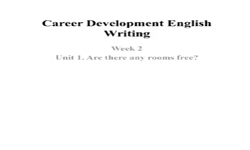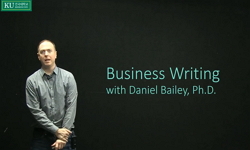영어 학습자의 증가와 국제화된 의사소통은 영어작문 능력에 대한 필요성을 증대시키고 있다. 실증적 연구의 결과와 언어 학습 이론들이 효과적인 작문 수업을 위한 피드백의 중요성을 강...
http://chineseinput.net/에서 pinyin(병음)방식으로 중국어를 변환할 수 있습니다.
변환된 중국어를 복사하여 사용하시면 됩니다.
- 中文 을 입력하시려면 zhongwen을 입력하시고 space를누르시면됩니다.
- 北京 을 입력하시려면 beijing을 입력하시고 space를 누르시면 됩니다.

영어작문의 과정적 글쓰기에서 자동작문평가(Automated Essay Scoring)의 효과 = Integration of Automated Essay Scoring (AES) in the Process of Writing in ESL/EFL Classes
한글로보기https://www.riss.kr/link?id=A82698231
- 저자
- 발행기관
- 학술지명
- 권호사항
-
발행연도
2011
-
작성언어
Korean
-
주제어
영어 작문 ; 자동작문평가 ; 과정적 글쓰기 ; 피드백 ; ESL/EFL Writing ; Automated Essay Scoring ; AES ; Process of Writing ; Feedback
-
KDC
373.305
-
등재정보
KCI등재
-
자료형태
학술저널
-
수록면
177-196(20쪽)
-
KCI 피인용횟수
1
- 제공처
-
0
상세조회 -
0
다운로드
부가정보
국문 초록 (Abstract)
영어 학습자의 증가와 국제화된 의사소통은 영어작문 능력에 대한 필요성을 증대시키고 있다. 실증적 연구의 결과와 언어 학습 이론들이 효과적인 작문 수업을 위한 피드백의 중요성을 강조하고 있지만, 효과적인 피드백을 위해 교사가 들여야 하는 시간과 노력을 고려해볼 때, 현실적 적용의 어려움이 많다. 이에 따라, 교사의 피드백을 도울 수 있는 도구로 Automated Essay Scoring(AES)가 점차 관심을 받게 되었다. AES는 학생과 교사에게 작문을 돕는 형성적 평가 도구로 활용될 수 있다. 이 연구는 AES가 영어 작문의 질과 정확성의 향상에 미치는 영향을 AES 통합의 유형과 영어 학습 환경에 따라 비교 연구하였다. AES program으로는 ETS에서 개발한 Criterion을 사용하였으며, AES 통합 유형은 3가지(No-AES, 선택적 AES, 통합적 AES)로 구분하고 영어 학습 환경은 미국(ESL)과 한국(EFL)로 나누었다. 한국과 미국의 대학에서 영어작문 수업을 듣는 대학생 172명이 참여하였으며, 학생들의 작문자료를 수집하여 분석하였다. 학생들의 작문은 전체적인 질(質)과 정확성 향상의 측면에서 평가되었다. 분석 결과, ESL과 EFL의 영어학습 환경 모두에서 통합적 AES 집단이 다른 두 집단보다 작문의 질과 정확성의 향상에 더욱 우수한 결과를 보였다. 하지만 영어 학습 환경이 작문의 질과 정확성에 미치는 영향은 통계적 유의성을 보이지 않았다. 연구 결과는 자동 작문 평가 시스템이 과정적 글쓰기와 통합적으로 활용될 때, 작문의 질과 정확성의 향상에 이바지할 수 있음을 밝혔다. 자동 작문 평가 시스템의 통합적 활용은 연구에서 제시되 피드백 모형의 효과를 실증적으로 보여준 것으로 향후 자동 평가 시스템과 같은 교육 프로그램의 활용 모델을 제시하였다.
다국어 초록 (Multilingual Abstract)
The growing number of English Language Learners(ELLs) and globalized communications are factors making English writing instruction a critical educational concern in many countries around the world. While empirical research findings and theories relate...
The growing number of English Language Learners(ELLs) and globalized communications are factors making English writing instruction a critical educational concern in many countries around the world. While empirical research findings and theories related to language learning have suggested instructive interactions, the considerable amount of time and efforts required for instructive interactions have hindered effective writing instruction. As a result, Automated Essay Scoring(AES) had gain attention of educators as a formative assessment tool, which provides assistive writing resources to teachers and students. This study examined the effects of types of AES integration - No-AES, Optional-AES, and Integrated-AES - and English learning contexts - ESL and EFL - in improving English writing quality. One hundred seventy two ELL students participated in this study from an ESL program at a U. S. university and an EFL program at a Korean university. Students received writing instruction under different types of AES integration settings and English learning contexts for the 8-week intervention period. Students` essays were collected and assessed for analysis. The analysis results revealed that the types of AES integration significantly influenced writing quality of each writing assignments in terms of holistic quality and accuracy. The Integrated-AES group received significantly higher holistic scores of the first drafts and the final revisions than the Optional-AES and the No-AES groups. In addition, the Integrated-AES group improved holistic scores and reduced errors significantly more than the Optional-AES and No-AES groups. The findings suggest that AES is an effective instructional tool as a formative assessment tool when it is integrated with writing instruction and process.
참고문헌 (Reference)
1 Zamel, V, "Writing: The process of discovering meaning" 16 (16): 195-209, 1982
2 Krashen, S, "Writing: Research, Theory, and Applications" Pergamon Press 1984
3 Silva, T, "Toward an understanding of the distinct nature of L2 writing: The ESL research and its implications" 27 (27): 657-677, 1993
4 Ferris, D, "The “grammar correction” debate in L2 writing: Where are we, and where do we go from here? (and what do we do in the meantime…?)" 13 (13): 49-62, 2004
5 Wood, D, "The role of tutoring in problem solving" 17 (17): 89-100, 1976
6 Shermis, M. D, "The impact of automated essay scoring on high stakes writing assessments" 2004
7 Elliot, S, "The impact of MY Access!™ use on student writing performance: A technology overview and four studies" Annual Meeting of the American Educational Research Association 2004
8 Ferris, D, "The case for grammar correction in L2 writing classes: A response to Truscott (1996)" 8 (8): 1-11, 1996
9 Truscott, J, "The case against grammar correction in L2 writing classes" 46 : 327-369, 1996
10 Kachru, B. B, "The alchemy of English" Pergamon Press 1986
1 Zamel, V, "Writing: The process of discovering meaning" 16 (16): 195-209, 1982
2 Krashen, S, "Writing: Research, Theory, and Applications" Pergamon Press 1984
3 Silva, T, "Toward an understanding of the distinct nature of L2 writing: The ESL research and its implications" 27 (27): 657-677, 1993
4 Ferris, D, "The “grammar correction” debate in L2 writing: Where are we, and where do we go from here? (and what do we do in the meantime…?)" 13 (13): 49-62, 2004
5 Wood, D, "The role of tutoring in problem solving" 17 (17): 89-100, 1976
6 Shermis, M. D, "The impact of automated essay scoring on high stakes writing assessments" 2004
7 Elliot, S, "The impact of MY Access!™ use on student writing performance: A technology overview and four studies" Annual Meeting of the American Educational Research Association 2004
8 Ferris, D, "The case for grammar correction in L2 writing classes: A response to Truscott (1996)" 8 (8): 1-11, 1996
9 Truscott, J, "The case against grammar correction in L2 writing classes" 46 : 327-369, 1996
10 Kachru, B. B, "The alchemy of English" Pergamon Press 1986
11 Shermis, M. D, "The Impact of Automated Essay Scoring on Writing Outcomes Online Submission" 25-27, 2008
12 Freedman, S. W, "The Evaluation of, and Response to Student Writing: A Review" 1984
13 Warschauer, M, "The Changing Global Economy and the Future of English Teaching" 34 (34): 511-535, 2000
14 Ferris, D, "Teaching ESL composition: Purpose, process, and practice" Routledge 2005
15 Ferris, D, "Teacher commentary on student writing: Descriptions & implications" 6 (6): 155-182, 1997
16 Ferris, D, "Student reactions to teacher response in multiple-draft composition classrooms" 29 (29): 33-53, 1995
17 Palincsar, A. S, "Social constructivist perspectives on teaching and learning" 49 (49): 345-375, 1998
18 Sommers, N, "Responding to student writing" College Composition and Communication 148-156, 1982
19 Zamel, V, "Responding to Student Writing" 19 (19): 79-101, 1985
20 Vygotsky, L. S, "Mindinsociety" Harvard University Press 1978
21 Gass, S. M, "Input, interaction, and output in second language acquisition, in Theories in Second Language Acquisition" Mahwah 175-199, 2007
22 Warden, C, "Improving feedback while decreasing teacher burden in ROC ESL business English writing classes. Explorations in English for professional communications" City University of Hong Kong 125-137, 1995
23 Lightbown, P. M, "How languages are learned" Oxford University Press 1999
24 Bransford, J. D, "How People Learn: Brain, Mind, Experience, and School" National Academies Press 2000
25 Long, M. H, "Focus on form: Theory, research, and practice, in Focus on form in classroom second language acquisition" Cambridge University Press 15-41, 1998
26 Cohen, A. D, "Feedback on compositions: Teacher and student verbal reports" 155-177, 1990
27 Hedgcock, J, "Feedback on Feedback: Assessing Learning Receptivity to Teacher Response in L2 Composing" 3 (3): 141-163, 1994
28 Hyland, F, "Feedback in second language writing: Contexts and issues" Cambridge University Press 2006
29 Ware, P, "Electronic feedback and second language writing, in Feedback in second language writing: Contexts and issues" Cambridge University Press 105-122, 2006
30 Nayar, P. B, "ESL/EFL dichotomy today: Language politics or pragmatics?" 31 (31): 9-37, 1997
31 Lee, I, "ESL Learners' performance in error correction in writing: Some implications for teaching" 25 (25): 465-477, 1997
32 Ferris, D, "Does error feedback help student writers? New evidence on the short-and between-pre-and-post-test effects of written error correction, in Feedback in second language writing" Contexts and issues 81-104, 2006
33 Schulz, R. A, "Cultural Differences in Student and Teacher Perceptions concerning the Role of Grammar Instruction and Corrective Feedback" 85 (85): 244-258, 2001
34 Leki, I, "Coaching from the margins" Research Insights for the Classroom 57-68, 1990
35 Chen, C. E, "Beyond the Design of Automated Writing Evaluation: Pedagogical Practices and Perceived Learning Effectiveness in EFL Writing Classes" 12 (12): 94-112, 2008
36 Warschauer, M, "Automated writing evaluation: defining the classroom research agenda" 10 (10): 157-180, 2006
37 Dikli, S, "Automated essay scroing in an English as a second language setting" The Florida State University 2007
38 Dikli, S, "An overview of automated scoring of essays" 5 (5): 1-36, 2006
동일학술지(권/호) 다른 논문
-
사이버대학생이 인식하는 교수실재감, 학습실재감, 학습성과 간의 구조적 관계 규명
- 한국교육정보미디어학회(구 한국교육정보방송학회)
- 강명희 ( Myung Hee Kang )
- 2011
- KCI등재
-
학습동기, 학습만족도 및 학업성취의 관계에서 학습몰입의 매개효과 -이러닝 환경의 학습자 중심으로-
- 한국교육정보미디어학회(구 한국교육정보방송학회)
- 하영자 ( Young Ja Ha )
- 2011
- KCI등재
-
학습여건에 따른 이러닝 만족요인의 상대적 중요도 탐색: 주,야간 대학생을 중심으로
- 한국교육정보미디어학회(구 한국교육정보방송학회)
- 김정겸 ( Jeong Kyoum Kim )
- 2011
- KCI등재
-
초등학교 교사들의 ICT활용수업에 영향을 미치는 요인 연구
- 한국교육정보미디어학회(구 한국교육정보방송학회)
- 신원석 ( Won Sug Shin )
- 2011
- KCI등재
분석정보
인용정보 인용지수 설명보기
학술지 이력
| 연월일 | 이력구분 | 이력상세 | 등재구분 |
|---|---|---|---|
| 2026 | 평가예정 | 재인증평가 신청대상 (재인증) | |
| 2020-04-20 | 학회명변경 | 영문명 : Korea Association Of Educational Information & Broadcasting -> Korea Association for Educational Information and Media |  |
| 2020-01-01 | 평가 | 등재학술지 유지 (재인증) |  |
| 2017-01-01 | 평가 | 등재학술지 유지 (계속평가) |  |
| 2013-01-01 | 평가 | 등재학술지 유지 (등재유지) |  |
| 2010-01-01 | 평가 | 등재학술지 유지 (등재유지) |  |
| 2008-01-01 | 평가 | 등재학술지 유지 (등재유지) |  |
| 2005-01-01 | 평가 | 등재학술지 선정 (등재후보2차) |  |
| 2004-01-01 | 평가 | 등재후보 1차 PASS (등재후보1차) |  |
| 2003-01-01 | 평가 | 등재후보 1차 FAIL (등재후보1차) |  |
| 2001-07-01 | 평가 | 등재후보학술지 선정 (신규평가) |  |
학술지 인용정보
| 기준연도 | WOS-KCI 통합IF(2년) | KCIF(2년) | KCIF(3년) |
|---|---|---|---|
| 2016 | 1.59 | 1.59 | 1.95 |
| KCIF(4년) | KCIF(5년) | 중심성지수(3년) | 즉시성지수 |
| 2 | 1.96 | 2.299 | 0.35 |




 KCI
KCI KISS
KISS






